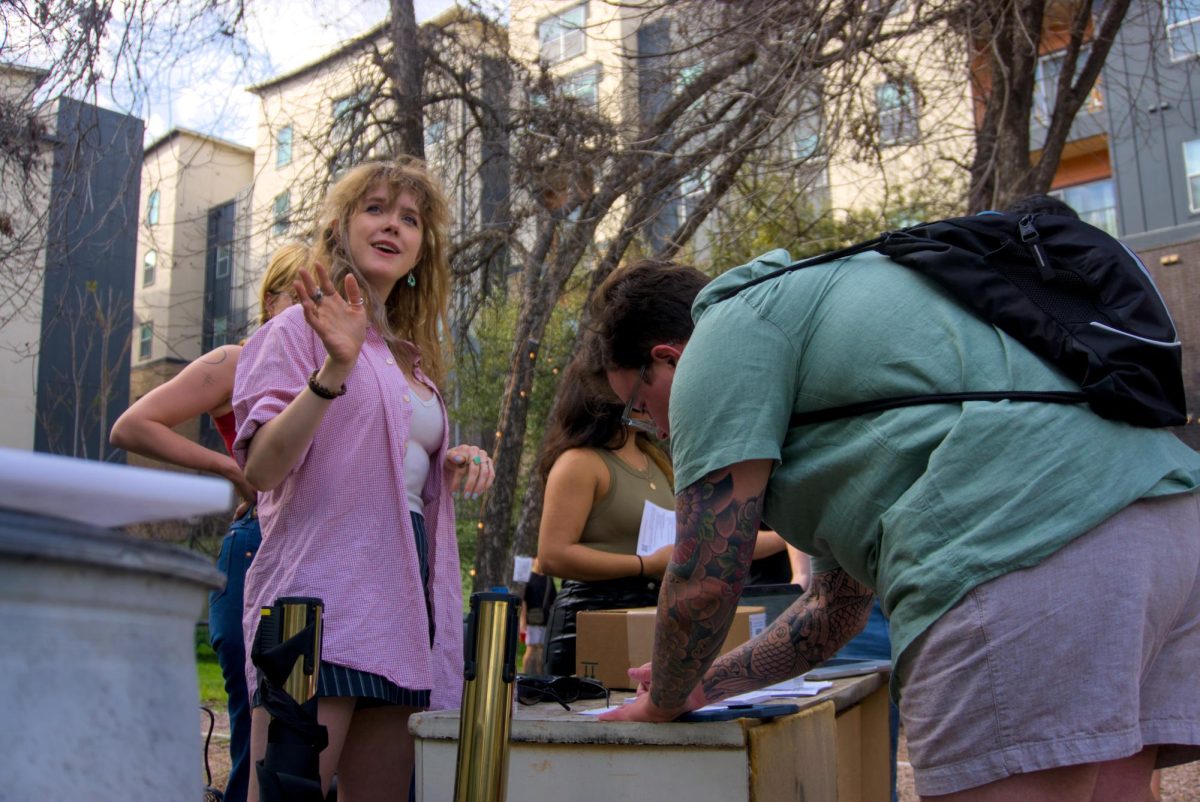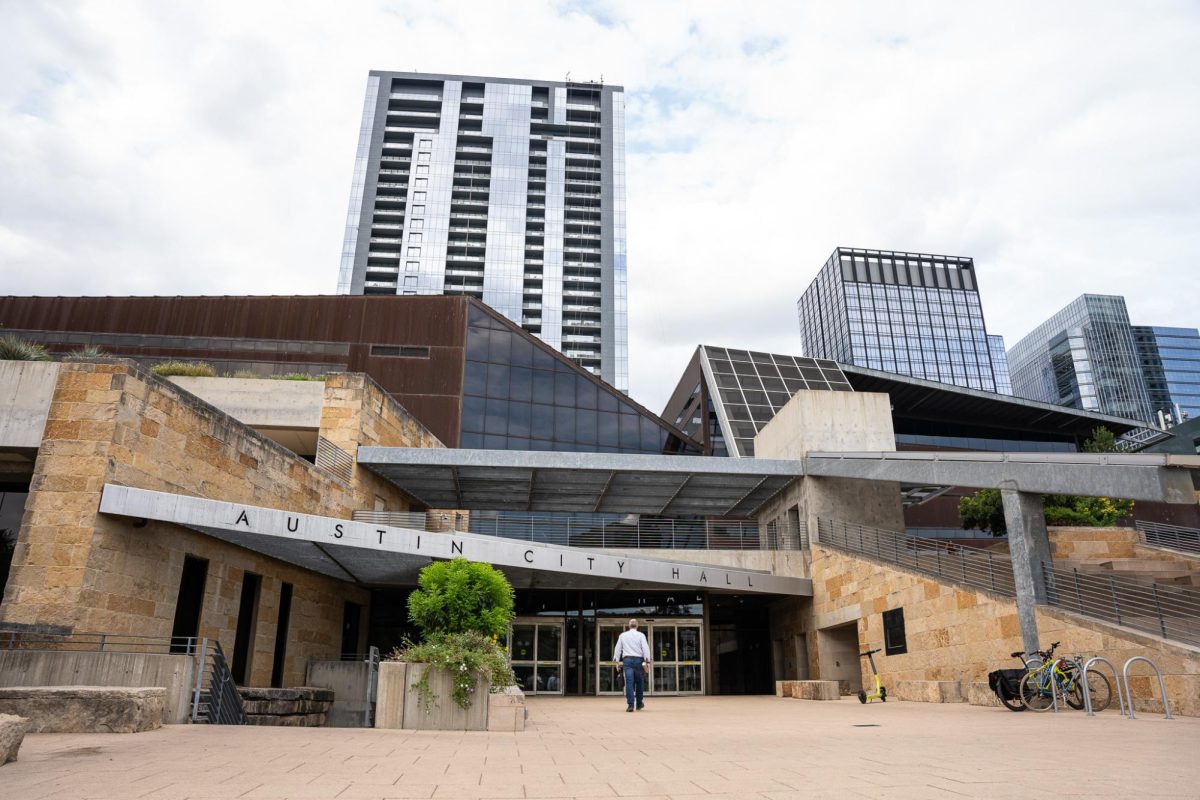Students gathered on Sunday at Pearl Street Co-op for the launch of the University Tenants’ Union.
The organization, previously called UT for Housing Transparency, rebranded to UTU at the launch. The organization previously campaigned to ban windowless bedrooms and their Instagram page highlights issues in housing for UT students. Plan II senior Isabel Webb Carey, architecture fourth-year Kayla Quilantang, Plan II and playwriting and directing junior Grant Gilker and architecture third-year Namratha Thrikutam spoke to the gathered students about the goals of UTU and encouraged them to join.
The Union hopes to bring a voice to those in West Campus by representing the individual issues of students and general advocacy.
“We’ve seen a lot of changes by the city and attempts to reconcile those things, and it’s not moving fast. Our voices are not at the table,” Gilker said. “This is a conversation that is happening between the city, the University and the university system structure, and they’re not conversations that take into account our voices at all.”
The Union plans to advocate for students through two main avenues: policy change and housing assistance. The Union said they plan to work with the city and University to change current policies. Their current goals include making sure the sidewalks are ADA accessible and getting grants from the city to expand cooperative living.
The Union also wants to set up an emergency rental assistance fund for students. The speakers highlighted students who live at the Venue who were forced to move out of their apartments in two days after they flooded due to heavy rains in January.
“That’s not a viable solution for students. We don’t have a disposable income. I certainly don’t have enough money to put myself out for a month at an AirBnB,” Webb Carey said. “It would cost an arm and leg.”
UTU also plans to focus on individual student concerns. Thrikutam said they are working to establish a legal aid network for students to turn to if they experience housing concerns.
“It’s not fair that we have to go through these issues and search things up online and piece together information about our rights as tenants,” Thrikutam said. “So we want to change that. … That’s what we’re here for.”
Aashka Shroff, a government and humanities junior, attended the launch. She lives at Rise at West Campus, a complex that left many students seeking alternative housing last semester because the building had not been completed.
“I think it’s really vital for West Campus to have a tenants’ union and to just recognize that (students) do have tenants’ rights,” Shroff said.
The current membership structure allows for students to either become members who can turn to the Union if they ever need assistance, or become organizers that can advocate for housing issues with the Union.
“Think about what your unique skills are, what your unique talents are, what your majors are, what your career aspirations are, and think about how you can lend that to these political initiatives,” Quilantang said. “You can do that in your own individual way and through combining all of these unique forces together, we’ll be stronger.”















